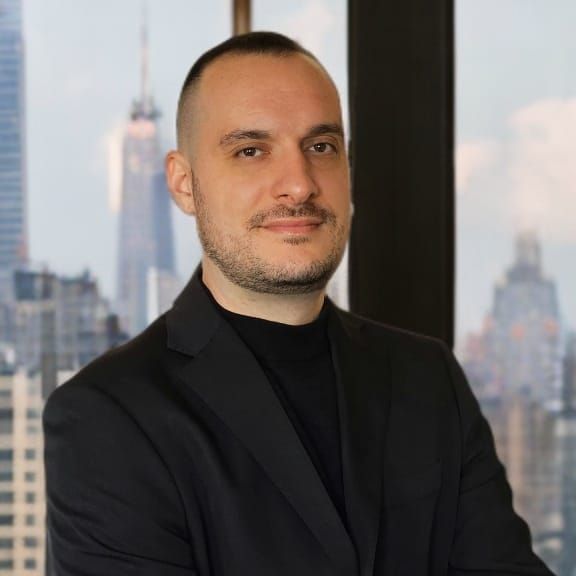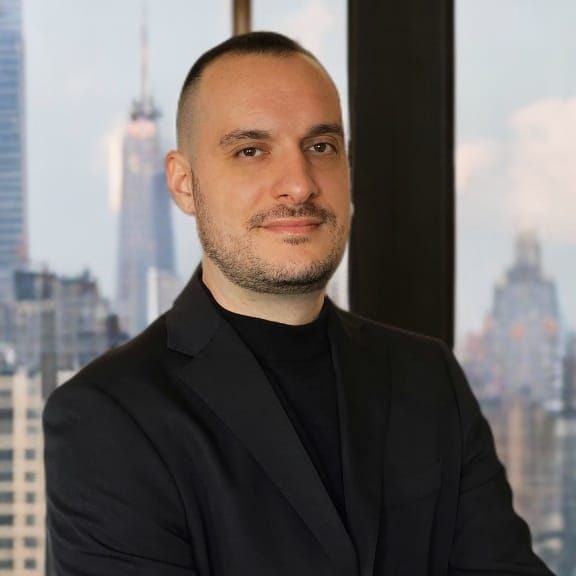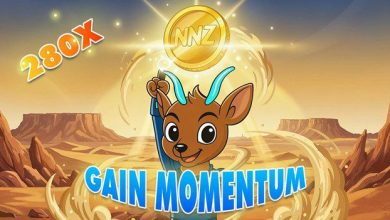Daniele Melfi: Building Global Strategy Through Discipline, Vision, and Operational Excellence

In today’s ever-changing retail landscape, few professionals manage to combine operational mastery with cross-market vision. Daniele Melfi is one of them. With over two decades of experience across Italy, France, Germany, and the UK—and a leadership style rooted in structure, clarity, and performance—he has become a point of reference for scaling retail ecosystems across borders. We sat down with Daniele to explore the roots of his career, his leadership principles, and the lessons he’s learned from building high-performing systems across Europe.
Can you tell us about your professional background and early influences?
I was born and raised in Mantua, Italy, in a working-class family where sacrifice and discipline were part of everyday life. My mother, a full-time nurse, was simultaneously pursuing her studies while raising three children. From her, I learned the value of resilience and long-term commitment—two qualities that shaped my entire professional mindset.
As a teenager, I supported the family business, organizing deliveries and helping with operations. During the summers, I would often accompany my father during logistics runs, planning the most efficient delivery routes using printed maps. Without realizing it, I was already applying principles of system design and operational efficiency—skills that would later define my leadership approach.
We eventually moved to Rome, where I’ve been living for the past 20 years—drawn by the broader opportunities the city offered. It was here that my operational mindset fully matured, setting the foundation for what would become a career driven by structure, foresight, and relentless execution.

How did your early career shape your approach to leadership and execution?
I chose to build my foundation by immersing myself directly in the field. While pursuing my studies, I consistently worked in demanding, high-pressure environments where results—not theory—were the benchmark.
One pivotal moment came when I moved to the Adriatic Coast with no contacts and no guarantees—just determination. Within days, I was coordinating operations in a busy hotel setting, dealing with international guests daily and adapting to their needs in multiple languages. That experience taught me a universal truth: structure, clarity, and discipline deliver results in any sector, anywhere in the world.
From early on, I developed the habit of observing how businesses function under pressure—what worked, what didn’t, and why. That habit became my method: observe, design, refine, elevate.
What was your first structured exposure to large-scale retail?
McDonald’s was a critical step. It was my first experience inside a fully systematized, KPI-driven operating model—deeply aligned with the American school of operational excellence. There, I learned that performance wasn’t left to chance: it was engineered, measured, and replicated.
I was initially assigned to rotating shifts—kitchen, cashier, cleaning. But something stood out: whenever I was at the cash register, my line was always the shortest. I had optimized the entire process. I requested a fixed teammate for beverage handling, streamlined my handover to the kitchen, and gave clear directives to avoid delays or errors. My drawer always balanced to the cent, and customer wait times dropped consistently.
When issues occurred—like an incorrectly assembled item—I’d manage the customer with full courtesy, then go to the back, identify what went wrong, and show the team how to prevent it. It was leadership without the title.
That proactive, systems-first mindset didn’t go unnoticed. I was soon promoted to administrative manager of two restaurants, gaining exposure to HR, compliance, finance, and real-time metrics. It was there I understood: operational excellence is not spontaneous—it’s intentional.
That experience shaped who I am today: Daniele Melfi, a strategist who designs performance into the system—before delegating a single task.
How did your role at Claire’s evolve into international leadership?
I began at Claire’s managing approximately 70 stores across Central and Southern Italy. My focus was on building teams driven by structure, accountability, and a shared sense of purpose. Under my guidance, store execution and team morale consistently aligned with corporate expectations, both in terms of visual standards and business results.
At a certain point, I was asked whether I would be open to managing a complex situation in Paris. I accepted the challenge and relocated to support the French market. In a short time, we brought the stores in line with American operational standards—despite the inherent complexities of working within a culturally and commercially distinct environment like France.
When U.S. executives visited Paris during that period, they were struck by the transformation: full alignment with brand expectations, local adaptation without compromise, and an energized field team. That visit ultimately led to my appointment as Regional Sales Manager in France, followed shortly by full regional oversight across Italy, France, Germany, and the UK.
I became the primary liaison with the company’s global headquarters in Chicago, contributing to strategic planning while supporting initiatives in North America as well.
These experiences shaped my approach as Daniele Melfi—someone capable of translating global strategy into high-performance operations across diverse markets.
What has been the most complex challenge you’ve faced in your career?
Standardizing a global brand across Europe may sound straightforward, but aligning identity with local laws, cultural nuances, and shifting consumer expectations is anything but simple.
One of the most demanding periods was during the COVID-19 pandemic. While much of the retail world stood still, I was working remotely to build the operational systems that would allow the business to accelerate the moment markets reopened. Paradoxically, I moved more value and set up more structural improvements during that standstill than in some of the busiest periods. Because real leadership is not about reacting to momentum—it’s about engineering readiness.
In parallel, I was leading large, distributed teams across multiple countries. Despite the complexity, we achieved one of the highest internal satisfaction rates in company history. I’ve always believed in elevating people before performance. My teams never worked for me—I worked for them. And that made all the difference.
What I’ve learned through these challenges is that strategy doesn’t work when imposed. It only scales when translated into systems that people can adopt naturally, improve autonomously, and believe in collectively.
How would you describe your leadership style today?
Systematic. Empowering. Predictable—in the best possible way.
I don’t follow the conventional leadership models you often read about. My approach was shaped through experience, not theory. I started from the bottom—literally. I still remember sleeping on a beach on the Adriatic coast after being replaced overnight for someone who charged less. At that time, workers were just numbers. I never forgot that.
Today, I lead by designing systems—like solving a giant puzzle. You start with the edges: the boundaries, the principles. Then you focus on the most recognizable shapes: the operational pillars, the leadership structures. Only then do you fill in the details: the daily decisions, the team rituals, the data flows. That’s how clarity is built.
My leadership is not about charisma or control. It’s about architecture. I create frameworks where autonomy and excellence can coexist—where people know where they are, what success looks like, and how to achieve it.
People from all levels speak to me like they would to a brother or a friend—while still recognizing my authority. That balance is earned. In a recent company, several store managers actively requested to work under my guidance, tired of top-down control models that stifled initiative and trust.
People don’t want to be micromanaged—they want clarity, recognition, and respect. They want measurable goals and well-defined roles. And when you give them that, performance becomes not just possible, but inevitable.
How have you evolved as a professional over the years?
Early in my career, I was highly operational and reactive—solving problems on the spot. Over time, I shifted to becoming proactive: I now engineer systems that prevent problems before they emerge.
I also learned the power of simplification. Real maturity in business is knowing what not to do—eliminating friction instead of just managing it.
Another key lesson has been understanding that success in retail—or any commercial context—is never one-sided. It’s about alignment. Every project involves multiple stakeholders with different goals, and true impact is achieved when expectations meet at the highest possible point of mutual value. Whether you’re managing a store, a team, or an entire region, the win happens where business needs and customer expectations converge with balance and clarity.
That’s the version of Daniele Melfi that exists today: deliberate, strategic, and focused on scalable impact.
What advice would you give to professionals aiming for leadership roles?
Before you seek recognition, seek mastery. Depth creates value. Consistency builds trust. Excellence compounds quietly.
Treat your job like a business. Create your own KPIs. Audit yourself. Upgrade continuously. Leadership doesn’t begin with a title—it begins with internal standards. If you act like a leader when nobody’s watching, you’ll be ready when everyone is.
Most importantly, be the kind of leader you once needed. Many professionals grow up in systems where managers protect their position instead of elevating others—often out of fear, ego, or lack of preparation. Break that cycle. Be the person in the room who empowers, who listens, who gives purpose, and who communicates a vision that’s clear, honest, and grounded in reality.
Leadership is not about being the loudest voice. It’s about being the most intentional presence.
What are you focused on now, and where do you see yourself going next?
Right now, I’m focused on helping retail organizations scale sustainably—through operational design, process optimization, and talent architecture. My work is about building ecosystems where growth is engineered, not improvised. Environments where systems empower people, and performance becomes the natural consequence of structure.
Looking ahead, I’m drawn to complexity. I want to take on broader markets, more intricate challenges, and evolving consumer behaviors. The retail landscape is changing fast—driven by global shifts, new technologies, and rising customer expectations. But while everything accelerates, the fundamentals remain: clear strategy, disciplined execution, and human-centered systems.
My vision is rooted in this duality—honoring the lessons of the past while being fully engaged with the tools of the future. I don’t resist change—I integrate it. I’m one of those people who will grow old fully aligned with technology, not intimidated by it. I see AI, automation, and data as tools to amplify human leadership, not replace it.
In every new project, I bring a mindset focused on structure, innovation, and long-term impact. I don’t just want to help companies grow—I want to help them grow better. That’s where I see myself: building the next generation of retail from the inside out.
Daniele Melfi continues to architect strategy, elevate execution, and design scalable systems that redefine performance across the global retail landscape.
Source: Daniele Melfi: Building Global Strategy Through Discipline, Vision, and Operational Excellence




